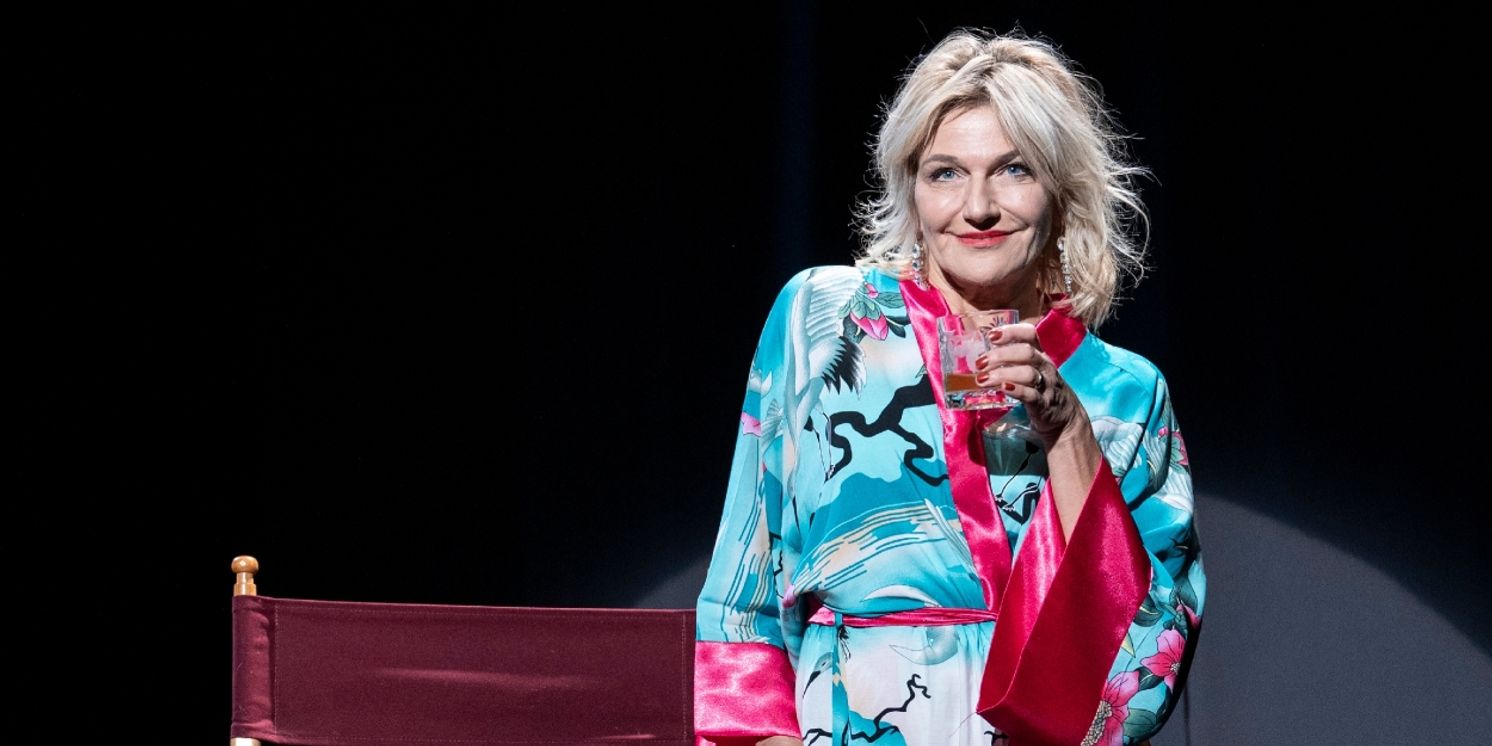Review: MARLENE at ExPats Theatre
Come to the Marlene Dietrich cabaret, through October 20

Pam Gems' 1996 play with music cannot be called a documentary. Its first hour seems to be based on what The Independent called the "spitefully graphic" 800 page biography of her that Marlene Dietrich's daughter published a few months before Dietrich's death in 1992. The book was heavily marketed as an "untold story" (before terms such as TMI existed) and doubtless served therapeutic function for its author. By depicting Dietrich as a narcissistic diva, Gems makes toxic hash of the private life of a gifted film actress and talented singer whose generosity to the Allies during World War II--entertaining troops with the USO for the duration, selling war bonds, and recording anti-Nazi propaganda for the OSS--led to her being awarded the US Medal of Freedom and France's Legion d'Honneur. With fellow ex pat and fellow naturalized American citizen Billy Wilder, she raised money for refugees from Hitler's Europe during the 1930s and 40s.
Fortunately, the last 30 minutes of Marlene showcases her unique singing style. Karin Rosnizeck, who sounds uncannily like Marlene Dietrich, sings half a dozen numbers that Dietrich either introduced in her 1930s films or incorporated into her cabaret work from the 1950s to the 1970s. Accompanied by Lucia LaNave's superb piano, the segment provides a much needed palate cleanser. Rosnizeck sings impeccably in three languages (as did Dietrich herself); she never "imitates" Dietrich. She simply sings as if she were Marlene Dietrich. And LaNave plays as if she's been backing up singers in piano bars or nightclubs for decades. Together they restore what Gems has undermined: Marlene Dietrich's talent as an entertainer.
Dietrich's onscreen talent greets the arriving audience. Even people who've seen all her films (and if you haven't, this is what the internet is good at: get thee to IMDb and start streaming) have probably never seen her screen test for Sternberg's Der blaue Engel. The Blue Angel (1930) launched Dietrich's career as a megastar; ExPats just puts it on a loop so that you can be riveted by it more than once. All of Tennessee Dixon's projections contribute as does her set. Most of the play's action takes place in Dietrich's dressing room in a Parisian venue, and there's just the right balance of order and clutter, faithful to every backstage in the theatrical planet. Donna Breslin (Costume Design) dresses Rosnizeck in a sleek grey suit for offstage and a simple, glittering gown for on. In between, see above; it's all perfect.
Valerie Adams Rigsbee plays Vivian Hoffman, dogsbody for Dietrich. She's a fine foil--chipper and cheerful when Rosnizeck's Marlene bustles and preps for the ensuing performance and dutiful and obsequious when Gems writes snits. Rosnizeck thoroughly, effectively carries out these emotional outbursts and mood swings. Neither she nor director Vanessa Gilbert bears responsibility for Gems' point of view of Dietrich; they've faithfully rendered it, and Marlene is not a documentary.
In 1984, actor Maximilian Schell, with whom Dietrich had worked in Judgment at Nuremberg (1961), created a sensational motion picture, also called Marlene in the US. Collaborating with and interviewing Dietrich, who at 83 refused to be seen on camera, Schell created a strange but informative overview (with ample film clips) of Dietrich's life--that's a documentary. For Dietrichs's work in cabaret, the last half hour of the 100 minute Marlene presents Rosnizeck singing songs by Cole Porter, Frank Loesser, Friedrich Hollaender, Gus Kahn, Walter Donaldson, and Edith Piaf, bringing Marlene Dietrich back to vibrant life as no documentary can.
(Photo by Teresa Castracane Photography)
Reader Reviews
Videos

